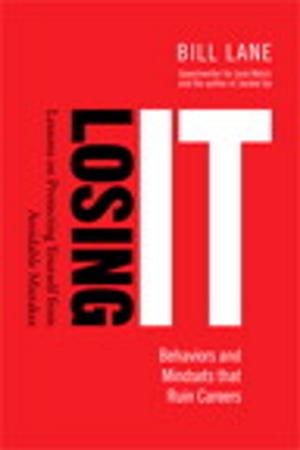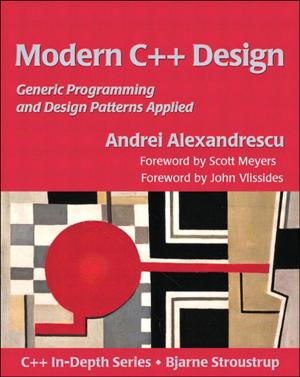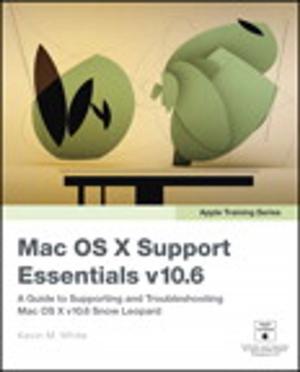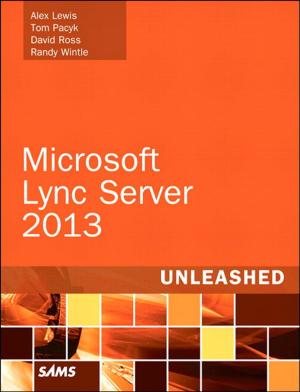| Author: | Benjamin Rosenzweig, Elena Rakhimov | ISBN: | 9780137151707 |
| Publisher: | Pearson Education | Publication: | August 15, 2008 |
| Imprint: | Prentice Hall | Language: | English |
| Author: | Benjamin Rosenzweig, Elena Rakhimov |
| ISBN: | 9780137151707 |
| Publisher: | Pearson Education |
| Publication: | August 15, 2008 |
| Imprint: | Prentice Hall |
| Language: | English |
This integrated learning solution teaches all the Oracle PL/SQL skills you need, hands-on, through real-world labs, extensive examples, exercises, and projects! Completely updated for Oracle 11g, Oracle PL/SQL by Example , Fourth Edition covers all the fundamentals, from PL/SQL syntax and program control through packages and Oracle 11g’s significantly improved triggers.
One step at a time, you’ll walk through every key task, discovering the most important PL/SQL programming techniques on your own. Building on your hands-on learning, the authors share solutions that offer deeper insights and proven best practices. End-of-chapter projects bring together all the techniques you’ve learned, strengthening your understanding through real-world practice.
This book’s approach fully reflects the authors’ award-winning experience teaching PL/SQL programming to professionals at Columbia University. New database developers and DBAs can use its step-by-step instructions to get productive fast; experienced PL/SQL programmers can use this book as a practical solutions reference. Coverage includes
• Mastering basic PL/SQL concepts and general programming language fundamentals, and understanding SQL’s role in
PL/SQL
• Using conditional and iterative program control techniques, including the new CONTINUE and CONTINUE WHEN statements
• Efficiently handling errors and exceptions
• Working with cursors and triggers, including Oracle 11g’s powerful new compound triggers
• Using stored procedures, functions, and packages to write modular code that other programs can execute
• Working with collections, object-relational features, native dynamic SQL, bulk SQL, and other advanced PL/SQL capabilities
• Handy reference appendices: PL/SQL formatting guide, sample database schema, ANSI SQL standards reference, and
more
This integrated learning solution teaches all the Oracle PL/SQL skills you need, hands-on, through real-world labs, extensive examples, exercises, and projects! Completely updated for Oracle 11g, Oracle PL/SQL by Example , Fourth Edition covers all the fundamentals, from PL/SQL syntax and program control through packages and Oracle 11g’s significantly improved triggers.
One step at a time, you’ll walk through every key task, discovering the most important PL/SQL programming techniques on your own. Building on your hands-on learning, the authors share solutions that offer deeper insights and proven best practices. End-of-chapter projects bring together all the techniques you’ve learned, strengthening your understanding through real-world practice.
This book’s approach fully reflects the authors’ award-winning experience teaching PL/SQL programming to professionals at Columbia University. New database developers and DBAs can use its step-by-step instructions to get productive fast; experienced PL/SQL programmers can use this book as a practical solutions reference. Coverage includes
• Mastering basic PL/SQL concepts and general programming language fundamentals, and understanding SQL’s role in
PL/SQL
• Using conditional and iterative program control techniques, including the new CONTINUE and CONTINUE WHEN statements
• Efficiently handling errors and exceptions
• Working with cursors and triggers, including Oracle 11g’s powerful new compound triggers
• Using stored procedures, functions, and packages to write modular code that other programs can execute
• Working with collections, object-relational features, native dynamic SQL, bulk SQL, and other advanced PL/SQL capabilities
• Handy reference appendices: PL/SQL formatting guide, sample database schema, ANSI SQL standards reference, and
more















